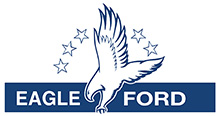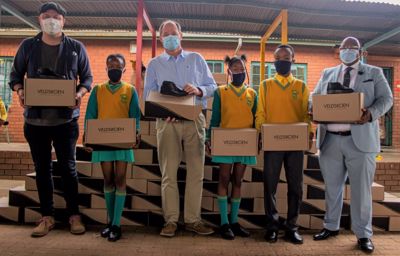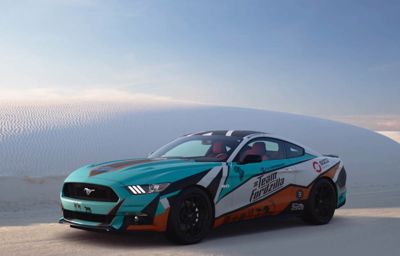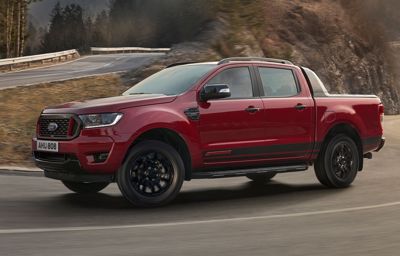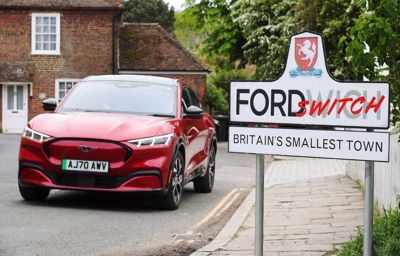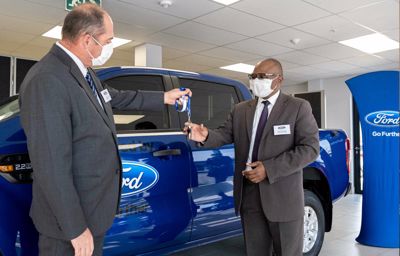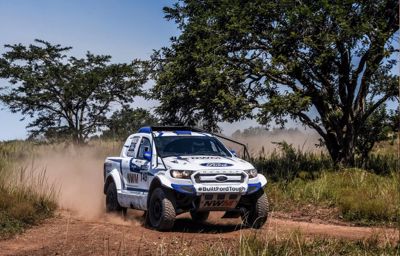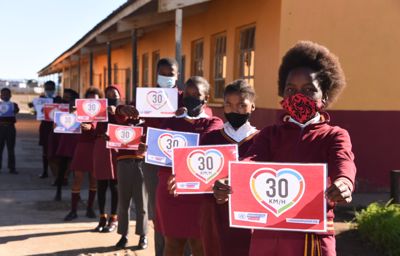
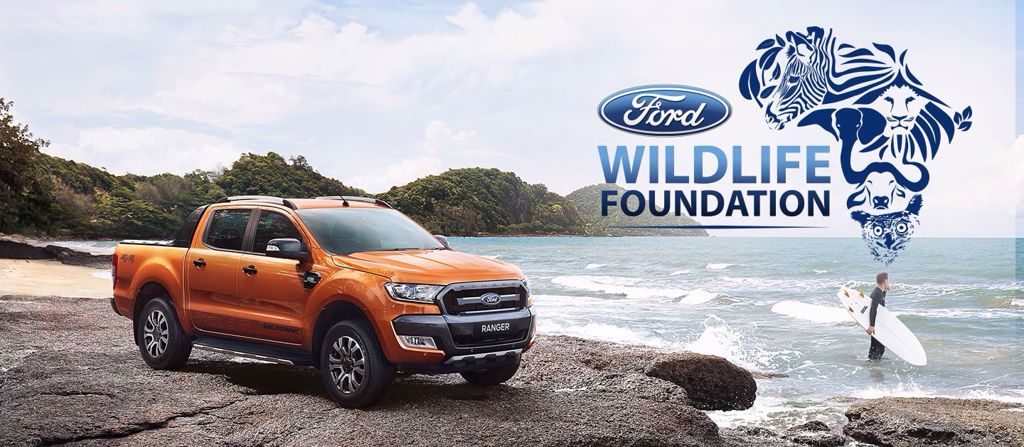
Ford Wildlife Foundation
Ford Commits to Environment with Ford Wildlife Foundation
The conservation and preservation of the environment has become a major worldwide issue, dramatically changing the attitudes of consumers and the way large corporations do business.
Against this background the Ford Wildlife Foundation (FWF) was announced in September 2014, funded by the Ford Motor Company of Southern Africa and supported by its nationwide network of Ford Dealers.
The FWF supports environmental education, research and conservation projects around Sub Saharan Africa. The Ford Ranger is used to enable the projects to go further and make a real impact in the communities in which they operate. For further information on the FWF, please email [email protected]
Ford Wildlife Foundation Projects
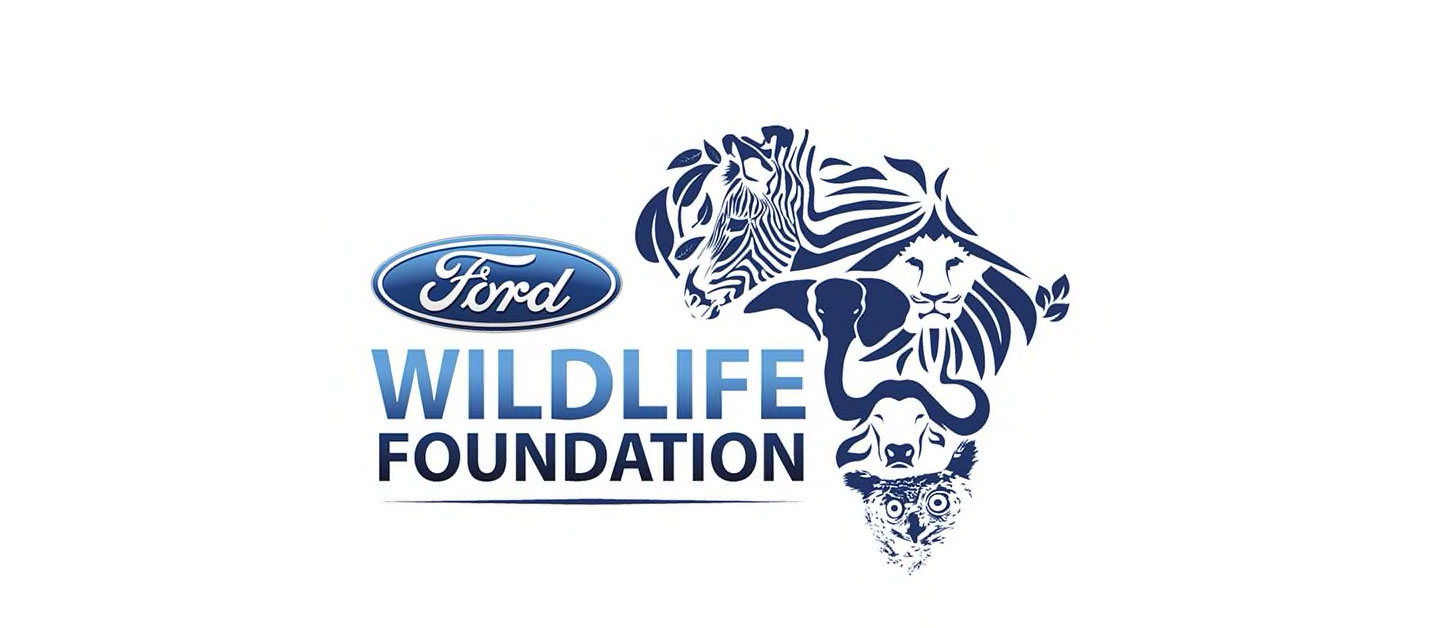
Ford Wildlife Foundation supports a variety of projects focusing on Education, Conservation and Research. Further details of the projects the Foundation supports can be found here.
-
WESSA (Wildlife and Environmental Society of South Africa)
Umgeni Valley – National Environmental Education Program – One of the largest non-governmental environmental education projects in South Africa, with thousands of students participating in courses each year, both within South Africa and abroad. This was in response to the world-wide appeal for increased knowledge and awareness of our total environment and a more caring attitude to it.
Wildcoast and Eco Schools Program – International Programme which was developed to support environmental learning in the classroom. The programme is aimed at creating awareness and action around environmental sustainability in schools and their surrounding communities as well as supporting education for sustainable development in the national curriculum.
National EIA Training Program - Training, education and skills development programmes to private individuals, corporates and all spheres of government, with an extensive range of courses designed to address the critical scarcity of the skills that are required to drive a green economy.
DELTA
Waterwise Education Team – Environmental Education Training and consultation organisation. Delta is an independent, registered, non-profit company that aims through education & training programmes to enable people to improve their environment by promoting the management and sustainable use of all resources
-
EWT ( Endangered Wildlife Trust)
Threatened Grassland Species – The main aim of the TGSP is to develop an ecosystems approach towards grassland conservation by implementing conservation actions for priority areas within grasslands by focusing on priority species.
Drylands Conservation Program – Maintain ecosystem conditions in the drylands that can support biodiversity including threatened species such as the Riverine Rabbit, whilst simultaneously ensuring socio-economic benefits to landowners. The Riverine Rabbit is one of Southern Africa’s most threatened mammals and is listed as critically endangered.
Ground Hornbill & Large Birds Project – Further understand Ground Hornbill biology; ensuring that there is effective and efficient co-ordination of Ground Hornbill Conservation activities; securing viable habitat and promoting the sustainable utilisation and conservation of savannas.
Operation Oxpecker - Oxpecker’s were once numerous in South Africa, but due to Big 5 hunting, Rinderpest and the use of dips, has lead to their declined numbers. The aim of the project is to conserve the Red-Billed and Yellow-Billed Oxpecker’s in South Africa.
WWF (World Wildlife Fund)
The Black Rhino Range Expansion Project (BRREP) – The Project aims to increase the range and numbers of the critically endangered black rhino of the subspecies D.b. minor by (1) stimulating the growth rates of existing populations in situ in state reserves, which were also sources of founders for new populations; and (2) establishing new populations by entering into partnerships with landowners not necessarily traditionally involved in black rhino conservation; these could be private, state or community landowners.
WESSA
National Coastal Project – Blue Flag Beaches – This is an international award given to beaches that meet a standard of excellence in the areas of safety, amenities, cleanliness, environmental information. 39 Beaches have achieved full status and 30 beaches have been awarded pilot status.
Birdlife South Africa / UCT
Fitzpatrick Institute - Important Bird Areas – This is one of Birdlife International’s most important conservation initiatives. The IBA programme identifies and works to conserve a network of sites critical for the longterm survival of bird species that are: globally threatened; have a restricted range, are restricted to specific biomes/vegetation types.
Cape Parrots – Endemic to South Africa and critically endangered by habitat loss, illegal capture and avian diseases. It is estimated that there are only 1000-1500 birds left in South Africa.
The Cape Leopard Trust
The Cape Leopard Trust – Established in 2004 as an active predator conservation working group using scientific research as a tool to facilitate conservation, particularly in finding solutions to human/wildlife conflict and inspiring a greater interest in the environment through an interactive environmental education legacy programme. The aim of the project is to protect the remaining leopard population in the Cape Fold mountains and surrounding areas.
Overberg Lowlands Conservation Trust
Overberg Lowlands Conservation Project (OLCP) – On the Southernmost region of the African continent lies one of the richest most threatened habitats, the Renosterveld. The OLCP has been setup for the sole purpose of saving the Overberg’s Renosterveld, in a way that addresses keeping landscapes alive through the preservation of these habitats and their ecological functioning.
Saving the Survivors (STS) – Creating HOPE from Hurt
Saving the survivors is a rhino and endangered wildlife unit for Africa. The project was started by Dr Johan Marais and Dr Gerhard Steenkamp in 2012.
The Aims of STS:
- Treat
- Test
- Research
- Teach - Educate (people, communities and children)
- Train - Amalgamate knowledge worldwide
EWT (Endangered Wildlife Trust)
Cheetah Metapopulation Project - This project involves the movement of Cheetahs between geographically isolated reserves to ensure the genetic and demographic integrity of Cheetahs in each reserve and the population as a whole in South Africa.
-
University of KwaZulu Natal
Zululand Nile Crocodile Research Project – The Nile Crocodile are an endangered species in South Africa. The study will assess the spatial ecology, reproductive, biology, habitat-use, population dynamics, ecotoxicology, nutritional ecology and genetic structure of the wild Nile Crocodile populations in the northeast region of southern Africa. The results will benefit national and international scientific and conservation management communities who are grappling with confirmed and suspected “die-offs” of crocodolian populations worldwide.
Sea Search Research and Conservation (www.seasearch.co.za)
Impact of effects of climate change on Cetaceans Project – Sea Search is associated with the University of Pretoria’s Mammal Research Institute and the University of Cape Town. The project is mainly focusing on the Indian Ocean humpback dolphin, Southern Africa’s most endangered cetacean. The project research is done both in South Africa and Namibia.
The Oceanographic Research Institute(ORI)
The ORI Coral Reef Programme - The iSimangaliso Wetland Park is a World Heritage Site, mainly due to the coral reefs which is its most important marine attraction. Corals are under global threat due to human activities as well as climate change. The ORI strives to yield information on:
- Nodes of high genetic diversity and resilience to Climate Change.
- Levels of fine-scale connectivity between the reefs.
- Options to mitigate the effects of CC and ENSO events.
- Improved management of reef fish stocks.
- Recommendations for improved conservation of the limited South African coral reefs.
- Cohesive reef management between the iSimangaliso Wetland Park and the Ponta do Ouro Partial Marine Reserve in southern Mozambique.
FORD WILDLIFE FOUNDATION (FWF) – APPLICATION PROCESS
- Complete the official FWF application form – you can access the form here
- Applications should be emailed to [email protected]
- Applications will be reviewed and a site visit may be required.
- Application presented to FWF Committee, which sits once per quarter, and Ford Management.
- Following evaluation by the FWF Committee and Ford Management, the applicant will receive an approval/rejection letter.
Terms and Conditions will be shared with all approved projects.
